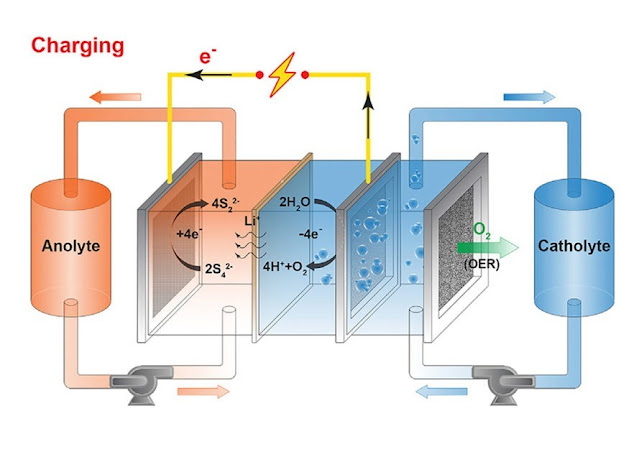Exploring Trends: Global Autoimmune Polyglandular Syndrome Type 1 Market Analysis
 |
| Global Autoimmune Polyglandular Syndrome Type 1 Market |
The Global Autoimmune Polyglandular Syndrome Type 1 Market
has been experiencing notable trends that are reshaping the landscape of
autoimmune diseases. This report aims to delve into the market's key trends,
conduct a Porter's analysis, and examine the market across different
geographical regions.
The global autoimmune polyglandular syndrome type 1 market
size is expected to reach US$ 317.9 Mn
by 2030, from US$ 257 Mn in 2023,
exhibiting a CAGR of 3.1% during the
forecast period.
Key players operating in the Global Autoimmune Polyglandular
Syndrome Type 1 Market Pfizer Inc., GlaxoSmithKline plc, Novartis AG, Mylan
N.V., Teva Pharmaceutical Industries Ltd., Sanofi, F. Hoffmann-La Roche Ltd.,
Zydus Cadila, Lupin, Amneal Pharmaceuticals LLC.
Market Key Trends:
In the Global Autoimmune Polyglandular Syndrome
Type 1 Market Size , several
key trends have emerged, reflecting advancements in research and treatment
options. One significant trend is the increasing focus on personalized medicine
and precision healthcare. Healthcare providers are increasingly recognizing the
heterogeneity of autoimmune diseases, including APS-1, and the importance of
tailoring treatments to individual patients based on their genetic makeup,
disease severity, and clinical manifestations. Additionally, there is growing
interest in immunomodulatory therapies and targeted biologics that aim to
modulate the immune system's response and prevent autoimmune attacks in APS-1
patients. Moreover, advancements in genetic testing technologies have enabled
the identification of novel genetic markers and disease pathways associated
with APS-1, paving the way for more accurate diagnosis and targeted therapies.
Porter's Analysis:
Porter's analysis offers valuable insights into the
competitive dynamics of the Global Autoimmune Polyglandular Syndrome Type 1
Market. The threat of new entrants into the market is relatively low due to the
high barriers to entry, including the need for specialized expertise in
autoimmune diseases, regulatory approvals, and investment in research and
development. Moreover, the bargaining power of suppliers in the market is
moderate, with pharmaceutical companies, biotechnology firms, and medical
device manufacturers negotiating terms with healthcare providers and research
institutions. However, the bargaining power of buyers, represented by patients,
healthcare providers, and insurers, is high, as they have numerous options to
choose from and can influence treatment decisions based on factors such as
efficacy, safety, and cost-effectiveness. Intense competition among existing
players further amplifies the need for differentiation and innovation to
capture and retain market share in the highly specialized APS-1 market segment.
Geographical Regions:
The Global Autoimmune Polyglandular Syndrome Type 1 Market
exhibits varying dynamics across different geographical regions. In North
America, the market is characterized by a high level of research and
development activity, with leading academic institutions, biotechnology hubs,
and pharmaceutical companies driving innovation in APS-1 research and therapy
development. Moreover, the region's robust healthcare infrastructure, favorable
regulatory environment, and strong reimbursement policies support market growth
and investment in novel treatment modalities for APS-1 patients. In Europe,
advancements in genetic research and personalized medicine contribute to the
adoption of innovative therapies and diagnostic approaches for APS-1. Countries
such as the UK, Germany, and France have well-established healthcare systems
and patient registries, facilitating clinical research and collaboration in
APS-1 management. In Asia-Pacific, rising healthcare expenditure, increasing
prevalence of autoimmune diseases, and government initiatives to promote precision
medicine drive market expansion. Countries like Japan, South Korea, and
Australia are at the forefront of APS-1 research and therapy development, with
significant investments in biotechnology and healthcare infrastructure to
address unmet medical needs in autoimmune diseases.
The Global Autoimmune Polyglandular Syndrome Type 1 Market
is influenced by key trends, competitive dynamics, and regional variations.
Understanding these factors is crucial for stakeholders to capitalize on
opportunities and address challenges effectively. By leveraging advancements in
personalized medicine, fostering collaboration, and adapting to regional
preferences and regulations, players in the global autoimmune polyglandular
syndrome type 1 market can enhance their competitiveness and drive sustainable
growth in APS-1 research, diagnosis, and therapy development.



Comments
Post a Comment